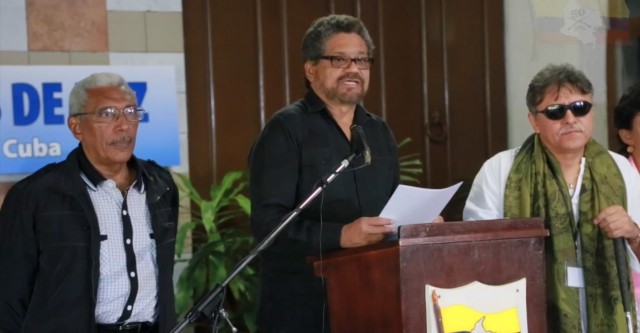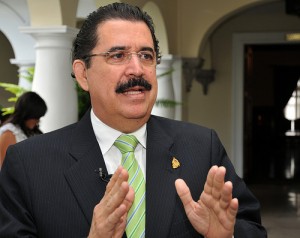
Andes, Latin America: Week in Review, Peru
Argentine Oil Firm Halts Work in Area of Peru
February 13, 2015 By Staff
Top Story — An Argentine oil company announced on Wednesday that it will cease operations in an area of the Peruvian Amazon after reportedly being asked to leave the area by Peru’s government, the BBC reported. The announcement follows a violent clash between protesters and police on Tuesday left one dead and 20 injured that erupted after demonstrators targeted an army base being used by the firm.
Demonstrators argue that the company was responsible for local water and soil pollution. A Pluspetrol spokesperson told the BBC that the firm was leaving the area because its operations – prospecting for natural gas deposits – had ended, not because of the protests, and that the company was operating within the law. A government official said Pluspetrol had been asked to leave so its operations could be reviewed.
Pluspetrol is a major player in Peru’s relatively small oil industry. As recently as Feb. 10, the firm announced its intentions to continue drilling on Peru’s largest oil block when its rights expire in August, despite being forced to pay some $100 million for environmental cleanup, a spokesperson told Reuters. The prospect of further drilling in the area has also prompted significant protests, including the seizure of oil wells by indigenous activists.
Headlines from the Western Hemisphere
North America
- The Mexican military has been accused of sexual abuse, after a woman came forward to say members of the Marines used threats, torture and sexual abuse to get her to falsely confess to involvement in drug trafficking.
- Thirty-two people from the United States and Mexico were accused of laundering more than $100 million in profits made in the United States by Mexico’s Sinaloa cartel, using drug money to buy gold that was sent to metal refineries in California and Florida, according to a federal complaint presented in a Chicago court.
- The Cuban Ministry of Culture invited the Minnesota Orchestra to play at an international two-day music festival in Havana, in what will be the first major cultural exchange between the two countries since President Barack Obama’s announcement of resumed diplomatic relations in December.
Caribbean
- A new U.N. study has found that Jamaica’s workforce has the world’s highest proportion of female managers, a trend mirrored in other Caribbean and Latin American countries where improvements in female education and social status have narrowed, and in some cases reversed, the gender gap.
- The corpse of a lynched Haitian man was found in a public park in Santiago, the second largest city of the Dominican Republic, a killing that comes amid heated debates regarding Haitian immigration, though the Santiago police reportedly “rejected racism as a motive.”
Central America
- The bust of a cocaine trafficking ring in Costa Rica on Wednesday suggests smaller trafficking groups are gaining in prominence as major drug cartels have been weakened by law enforcement and internal conflicts.
- The planned interoceanic canal in Nicaragua “could destroy millions of acres of rainforest and contaminate Lake Nicaragua,” according to an article in Scientific American, only adding to the list of concerns regarding the canal’s economic viability and how it will affect surrounding communities.
Andes
- Manu national park in Peru, considered the most biodiverse place in the world, is facing “immense threats” from oil and gas exploration and the planned expansion of a highway.
- A new report on the death of Venezuelan Congressman Robert Serra– who was stabbed to death along with his girlfriend in October– suggest the murder may have been a “crime of passion,” a finding that sharply contrasts with official accounts that had blamed Colombian paramilitary groups and painted Serra as a political martyr.
- Anti-government protests turned violent Thursday in the Venezuelan town of San Cristobal, which one year ago was the center of violent protests against the government of Nicolás Maduro.
Southern Cone
- Some 3,000 people from Brazil’s Homeless Workers Movement who set up temporary shelters around the capital of Brasilia– a situation captured in photos by the Associated Press– may receive low-income government housing in exchange for evacuating their settlements.
- As rescue searches continue following the deadly explosion on a ship leased by Brazil’s embattled state oil firm Petrobras on Wednesday, two additional bodies have been found, raising the death count to five.
- A former Guantanamo detainee who was resettled in Uruguay traveled to Argentina to request asylum for detainees still imprisoned at the facility in Cuba, saying “the Argentine government could receive the prisoners at Guantanamo here in a humanitarian way.”
Image: Villa de omas, CC BY-SA 3.0
Subscribe to Today in Latin America by Email
< Previous Article

February 12, 2015 > Dusty Christensen
FARC Rebels Announce a Ban on the Recruitment of Child Soldiers
Next Article >




